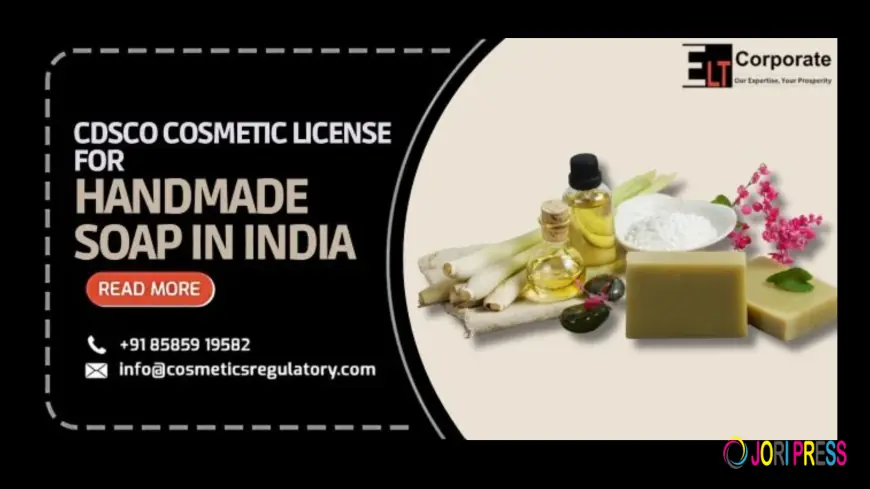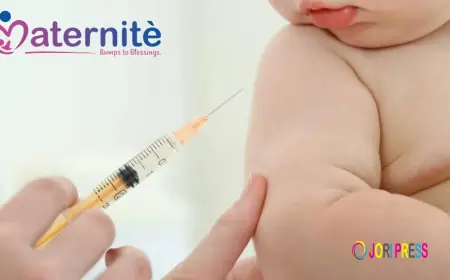License Required for Handmade Soap & Skincare Products in India: Complete Guide
India's skincare and wellness industry has seen an increase in handmade soap and organic skincare products, especially with the increasing demand for chemical-free and Ayurvedic solutions.

India's skincare and wellness industry has seen an increase in handmade soap and organic skincare products, especially with the increasing demand for chemical-free and Ayurvedic solutions. However, many small businesses and startups are unaware that soap manufacturing and sales are regulated under Indian law.
Whether you are crafting soaps at home or planning to launch a skincare brand, you must comply with licensing and regulatory requirements. This guide explains:
-
The license required for soap manufacturing in India
-
Whether you need an AYUSH license for handmade soap
-
How to apply for a homemade soap license
-
Rules for selling homemade skincare products legally
Is a License Required for Soap Manufacturing in India?
Yes. Any person or company manufacturing soaps, lotions, creams, or skincare products must obtain a manufacturing license under the Drugs and Cosmetics Act, 1940 and Cosmetic Rules, 2020.
-
If your soap is classified as a cosmetic, it falls under CDSCO and State Licensing Authority regulations.
-
If your soap is marketed with Ayurvedic claims, it requires an AYUSH license.
Even if soaps are handmade or produced on a small scale, you still need a license before selling them in the Indian market.
Handmade Soap License in India
Handmade soap is treated the same as commercial soap under Indian law if it is sold to consumers. The law does not differentiate between “handmade” and “factory-made” when it comes to compliance.
Applicable Rules
-
Cosmetic Rules, 2020 → Applies if soap is classified as a cosmetic.
-
Drugs & Cosmetics Act, 1940 → Governs the safety, labelling, and sale of cosmetics.
-
Legal Metrology Packaged Commodities Rules → Packaging must include MRP, expiry date, manufacturer/importer details, batch number, etc.
Documents Required for Handmade Soap License
-
Application form (as prescribed by the State Licensing Authority).
-
Company registration documents (Partnership/LLP/Private Limited).
-
Site plan and layout of the manufacturing premises.
-
Proof of ownership/lease of premises.
-
Details of technical staff (pharmacist/qualified chemist).
-
Product formulations and testing reports.
-
Fees as per state rules.
AYUSH License for Handmade Soap
If your soap is marketed as Ayurvedic, herbal, or Unani, you will need an AYUSH license from the Ministry of AYUSH.
-
Classical Ayurvedic Soap → Must follow formulations mentioned in authoritative Ayurvedic texts.
-
Proprietary Ayurvedic Soap → Requires approval of ingredients and formulation by the licensing authority.
AYUSH License Requirements
-
Premises of at least 1200–1500 sq. ft. (depending on state rules).
-
Qualified Ayurvedic expert (BAMS doctor/pharmacist).
-
GMP compliance for manufacturing.
-
Product formulation details.
Without an AYUSH license, you cannot legally claim your handmade soap is “Ayurvedic.”
How to Get a License for Homemade Soap?
If you are producing soaps from home, the process involves upgrading to a small-scale manufacturing unit that complies with hygiene and safety standards.
Step-by-Step Process
-
Decide product category → Cosmetic or Ayurvedic.
-
Register your business → Proprietorship, Partnership, LLP, or Pvt Ltd company.
-
Set up a compliant facility → Even small-scale units must meet basic manufacturing standards (clean premises, equipment, quality testing).
-
Apply to State Licensing Authority (SLA) → Submit documents + fees.
-
Inspection by authorities → SLA inspects your facility for compliance.
-
Grant of License → If approved, you receive a manufacturing license valid for specific products/brands.
Tip: If you cannot set up your own facility, you can use a third-party manufacturer that already holds a valid license.
Do You Need a License to Sell Homemade Skincare Products in India?
Yes. Whether it’s soap, lotion, face cream, or serum, homemade skincare products must comply with the Cosmetic Rules, 2020.
-
Without a license, selling homemade skincare is illegal, and products may be seized.
-
Online platforms like Amazon and Flipkart require license proof before listing skincare products.
-
Even small brands selling via Instagram or local markets are subject to regulatory action if caught.
Penalties for Selling Without a License
-
Seizure of products by inspectors.
-
Monetary fines.
-
Cancellation of business licenses.
-
In severe cases, imprisonment under the Drugs & Cosmetics Act.
Compliance Checklist for Soap & Skincare Startups
-
Business Registration → LLP, Pvt Ltd, or proprietorship.
-
Premises Approval → Meet hygiene and safety standards.
-
License Application → Apply for a cosmetic license (or AYUSH license for Ayurvedic soap).
-
Label Compliance → MRP, batch no., expiry, net quantity, ingredients.
-
Product Testing → Ensure safety and stability testing reports are available.
-
Renewals → Keep licenses and GMP certifications valid.
FAQs
Do I need a license to sell handmade soap at a local fair?
Yes. Even temporary or small-scale sales require compliance if you are selling to the public.
Which license is required for Ayurvedic handmade soap?
An AYUSH license from the Ministry of AYUSH.
Can I sell soaps online without a license?
No. E-commerce platforms require valid license proof to list skincare products.
How long does it take to get a soap manufacturing license?
Usually 60–90 days, depending on the state authority's processing.
Can I use a third-party manufacturer for handmade soaps?
Yes. Many startups partner with licensed third-party manufacturers to avoid setting up their own facility.
Conclusion
Whether you are planning to sell handmade soaps at small markets or launch a full-fledged skincare brand, a license is mandatory in India. Cosmetic products require approval under the Cosmetic Rules, 2020, while Ayurvedic soaps need an AYUSH license.
By obtaining the right license, complying with labelling rules, and ensuring product safety, you can grow your soap or skincare business legally and sustainably.
What's Your Reaction?
 Like
0
Like
0
 Dislike
0
Dislike
0
 Love
0
Love
0
 Funny
0
Funny
0
 Angry
0
Angry
0
 Sad
0
Sad
0
 Wow
0
Wow
0

















































